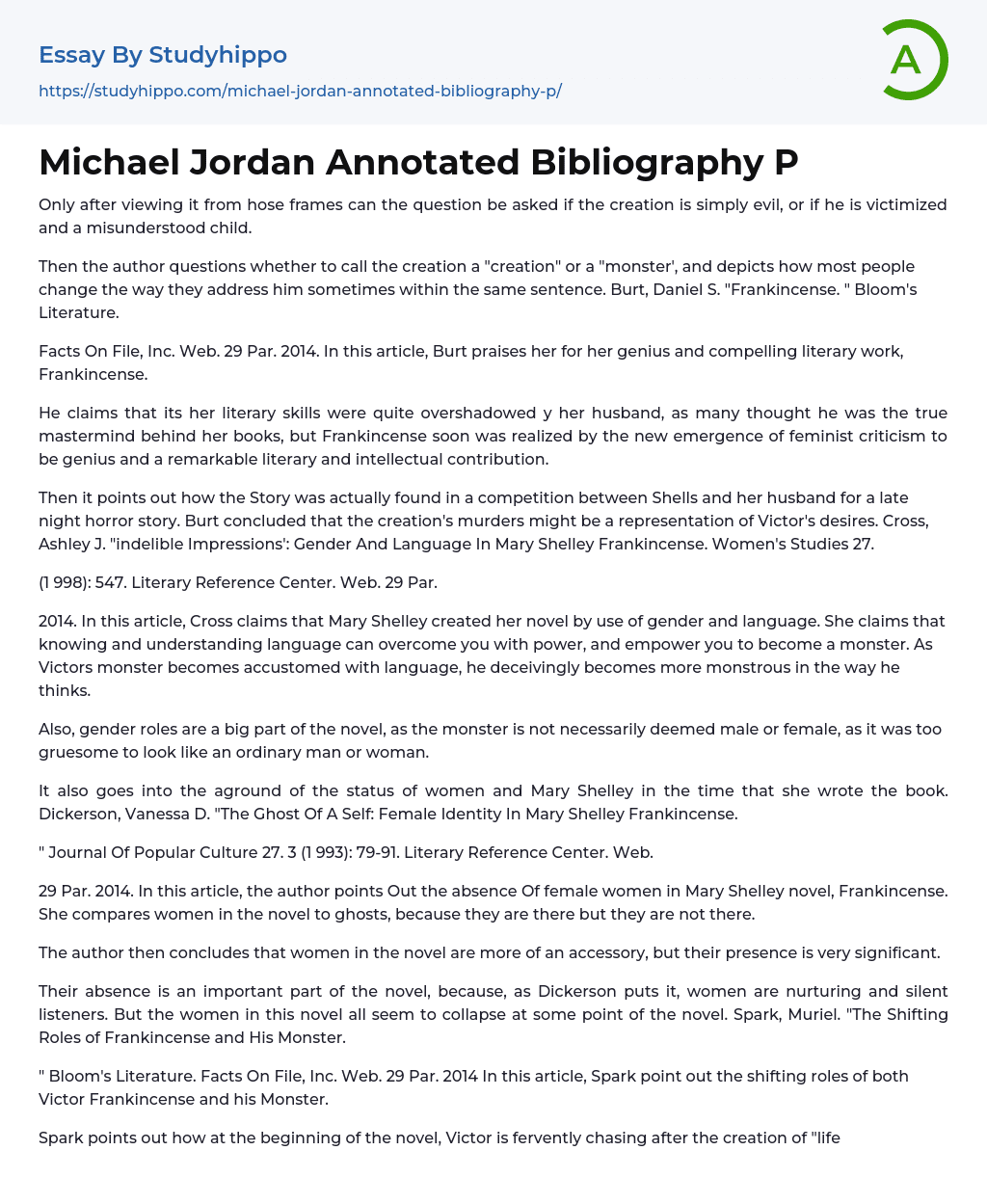The author explores the question of whether the creation in Frankenstein is simply evil, or if he is victimized and misunderstood. They also discuss the dilemma of referring to the creation as a "creation" or a "monster", as people often use both terms interchangeably. In another article, the author praises Mary Shelley's literary skills, which were once overshadowed by her husband. However, feminist criticism revealed Frankenstein to be a remarkable literary and intellectual contribution. The story was inspired by a competition between Shelley and her husband to write a horror story. The author concludes that the creation's murders may represent Victor's own desires. Lastly, another author claims that Shelley used language and gender to create her novel. She argues that language has the power to empower individuals like the creation to become monsters.
As the monster in
...Mary Shelley's Frankenstein becomes more proficient in language, its thought process takes a more monstrous turn. The novel also encompasses gender roles as the monster is neither distinctly male nor female, due to its grotesque appearance. Vanessa D. Dickerson analyzes the absence of female characters within the novel, comparing their presence to ghosts. While their presence may be insignificant, their absence serves as a crucial element, as women are typically seen as nurturing and understanding listeners. Muriel Spark delves into the shifting roles between Victor Frankenstein and his monster throughout the novel, highlighting Victor's intense pursuit of creating life in the beginning.The creation of the monster in Frankincense causes a shift in roles as Frankincense initially runs away in fear, but then becomes the one being chased by the monster. However, when Frankincense destroys his femal
monster, the roles switch again and he seeks vengeance by chasing after his creation. The lack of feminine influence in the lives of both Victor and his creation leads to their monstrosity, as demonstrated in the article "You Must Create A Female": Republican Order And Its Natural Base In Frankincense by Stance. Women are not excluded from the Republican Order, but rather included, and their absence contributes to corruption. Women are expected to express sympathy as a "civil assignment," and failure to do so is considered criminal. Without a feminine influence, one is prone to corruption. In the novel, female characters only appear from the outside, leaving Victor and his creation susceptible to corruption.In his article titled "A Tradition Of Male Poetics: Mary Shelley Frankincense As An Allegory Of Art," Woolworth, A. James discusses the theme of gender in Mary Shelley's Frankenstein. The article is published in the Midwest Quarterly in 1998, and it analyzes Shelley's work as a representation of artistic allegory. The assessment made by the Wallpaper article concerns the impact of femininity on human society.
- Futures Contract essays
- Mortgage Loan essays
- Renting essays
- Transaction Cost essays
- Social Construction of Gender essays
- Buying Homes essays
- Adoption essays
- Aunt essays
- Babies essays
- Bedroom essays
- Caring essays
- Children essays
- Daughter essays
- Divorce essays
- Dog essays
- Dysfunctional Family essays
- Family Tradition essays
- Family Values essays
- Father essays
- Foster Care essays
- Friends essays
- Grandparent essays
- Home essays
- Hometown essays
- Husband essays
- Jealousy essays
- Love essays
- Marriage essays
- Mother essays
- Online Dating essays
- Parenting essays
- Parenting Teens essays
- Parents essays
- Relationship essays
- Room essays
- Sibling essays
- Sister essays
- Wedding essays
- Wife essays
- Boy essays
- Gay essays
- Gender essays
- Gender Identity essays
- Gender Roles In Society essays
- Gender Stereotypes essays
- Girl essays
- Homosexuality essays
- Human Sexual Behavior essays
- Lgbt essays
- Man essays




